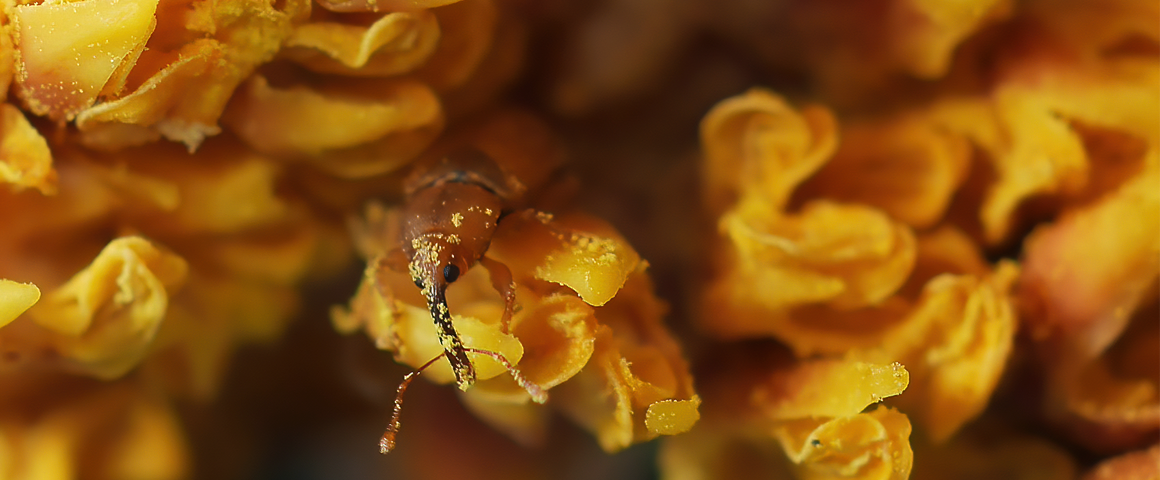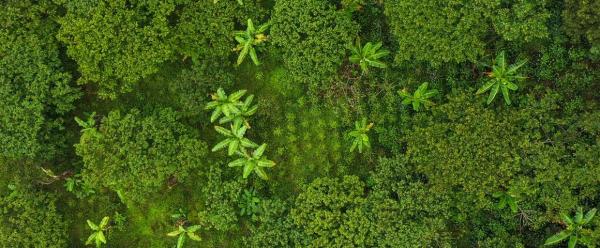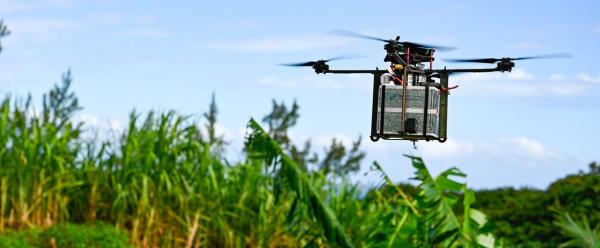Results & impact 10 October 2025
- Home
- Press area
- Press releases
- Pollination: we we also need to think about weevils
Pollination: we also need to think about weevils

Pollinating weevil (Derelomus chamaeropis) carrying pollen grains from its host, the dwarf palm Chamaerops humilis - © J. Haran, CIRAD
When people talk about pollination, they think first of bees carrying pollen from one flower to another, hence playing a vital role in the reproduction of large numbers of plants. However, certain much less well-known pollinators are also vital for pollination, for instance certain weevils. An initial study, published on 25 May 2023 in the journal Peer Community in Ecology by researchers from CIRAD and INRAE based at the Center for Biology and Management of Populations (CBGP) in Montpellier and their counterpart from the Field Museum of Natural History de Chicago (USA), highlight the extent of this phenomenon on a global scale. Based on an analysis of hundreds of published data on the interactions between weevils and plants, the study revealed that at least 300 of the 60 000 weevil species currently described have specialized pollination relationships with their host plants. The phenomenon applies to no fewer than 270 plant species, several of which are of agricultural interest (palms and Annonaceae, species closely related to nutmeg) or in danger of extinction (cycads).
The CBGP researchers have also completed a second study of weevils, published on 11 October 2023 in the journal Proceedings of the Royal Society B. In the new study, they continued their investigations into the interactions between weevils and plants, taking a phylogenomic approach, and specialized pollination relationships with plants appeared independently at least ten times. This emergence of multiple specialized pollinating weevil lines highlighted the ubiquity of such interactions.
Weevils are generally seen as formidable crop pests, both in the field and during storage, and chemical and biological control methods are used to eliminate them. This study showed that we need to qualify their role in ecosystems and more generally that there is still a long way to go in terms of understanding plant-insect relations in natural environments.
References
Haran, Julien; Kergoat, Gael J.; de Medeiros, Bruno A. S. Most diverse, most neglected: weevils (Coleoptera: Curculionoidea) are ubiquitous specialized brood-site pollinators of tropical flora. Peer Community Journal, Volume 3 (2023).
Haran, Julien; Li, Xuankun; Allio, Rémi; Shin, Seunggwan; Benoit, Laure; Oberprieler, Rolf G.; Farrell, Brian D.; O'Brien, Charles W.; Brown, Samuel; Leschen, Richard A.B.; Kergoat, Gael J., McKenna, Duane D. 2023. Phylogenomics illuminates the phylogeny of flower weevils (Coleoptera: Curculionidae: Curculioninae) and reveals eleven independent origins of brood-site pollination mutualism in true weevils. Proceedings of the Royal Society B. Volume 290.



























